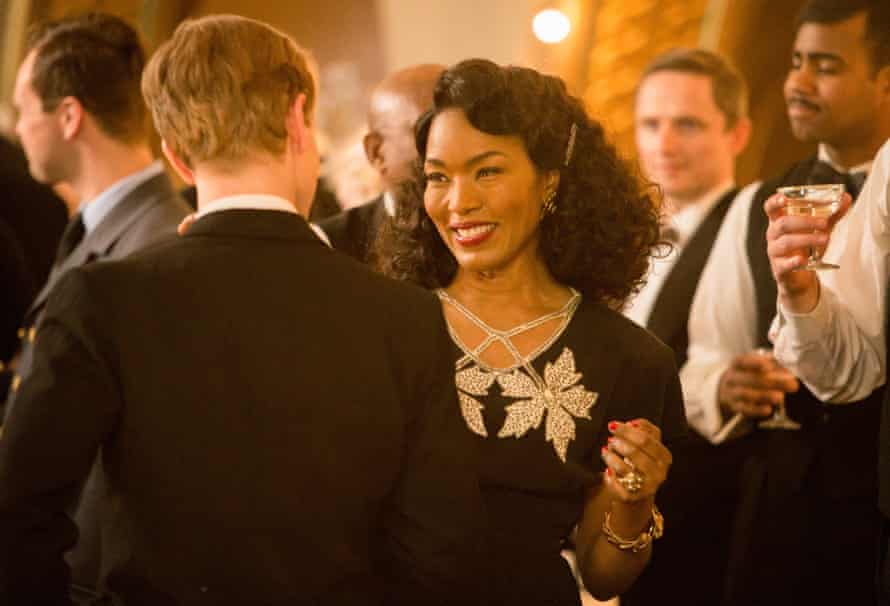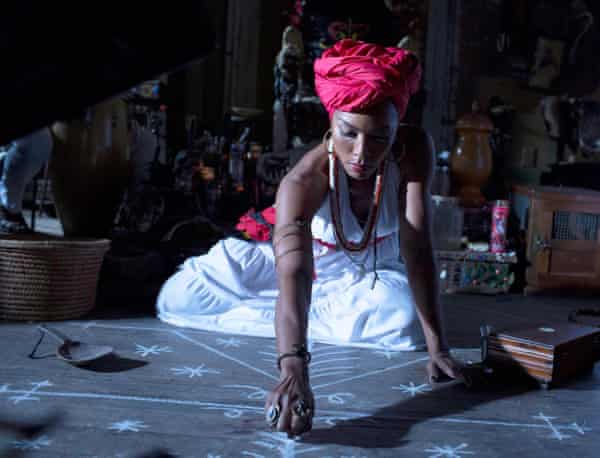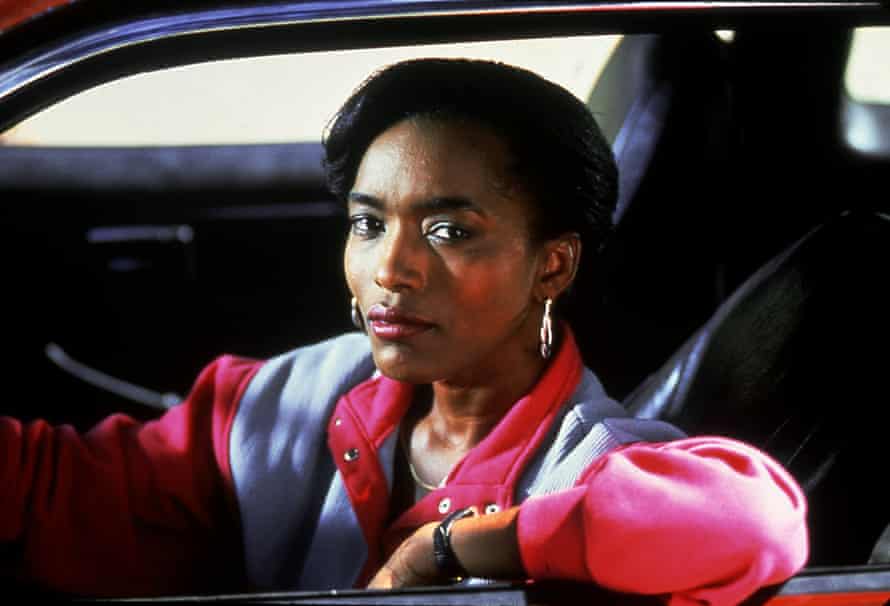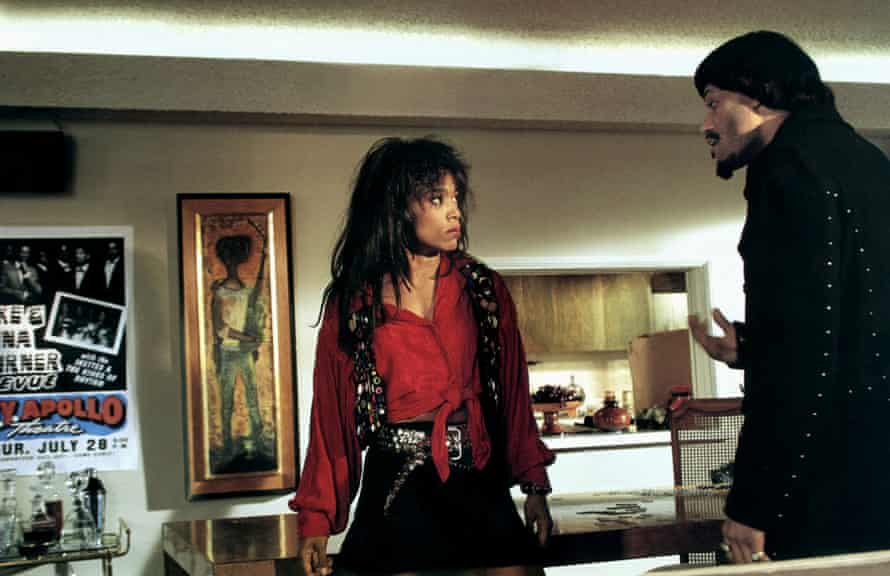 |
| ‘Anger doesn’t serve me’ Angela Bassett |
Angela Bassett: 'Anger doesn't serve me. If I'm frustrated, I just do better’
From Boyz N the Hood to playing Tina Turner, Angela Bassett has always been a trailblazer. But Close to the Enemy, Stephen Poliakoff’s latest drama about war-ravaged Britain, presented a new type of challenge
Sunday 6 November 2016
A
She decided there and then she would be an actor, but for a young black girl in the 1970s, she says, that was akin to saying she wanted to be an astronaut. “My mother was: ‘You going to be an actress? Not in your lifetime. What black actresses do we have?’” Did Bassett ever have doubts that she would be able to make it? She pauses for a while then says softly but firmly: “No.”
On that night late in September, as the Obamas took their seats in the theatre, Bassett was preparing to go on stage where she would speak about female singers of the 40s and 50s, such as Billie Holliday, Lena Horne and Sarah Vaughan. These women were in her mind for her new role as Eva, a jazz bandleader in writer-director Stephen Poliakoff’s new drama Close to the Enemy, set in blitzed London in the aftermath of the second world war.

But the woman who inspired her most was Bessie Coleman, the first female African American pilot, who got her licence in France because no US flight school would train her.
Eva, a dazzling shot of beauty, glamour and life in this wrecked grey city, has, says Bassett, “travelled away from home. And she’s in charge, she’s responsible for a group of men – a band – so navigating that during a time when it’s rough in America.” The grit required made her think of Coleman, “a woman from the south who wanted to fly planes, and how she put together her resources, learned French as best she could, working as a manicurist in a barber shop. To have that aspiration and manage to attain it. You’re not able to do it at home, but you can go to a foreign land because the desire to manifest your dreams is that strong that there is no obstacle too great.”
The role came about easily. Poliakoff had wanted Bassett, and she happened to bump into one of the drama’s producers in a hotel in London. He took her to meet the writer and director: “He’s a character. He’s very warm, very friendly. And different, which I love.” Playing the role was less easy, she says with a laugh. She’d thought she would be lip-synching the songs. “He said, ‘Oh no, you’re singing it yourself.’ The look of dread and fear. What?” She almost shouts this and laughs. “I don’t know the songs, I don’t know the tune, the lyrics. I meet you at the recording studio and off we go? He was pretty confident, I was pretty mortified.” Still, she says with a laugh, “it’s good to come out of your comfort zone”.

Her career, she says, has always been about “what inspires me to grow, to learn, the message – what are you saying – as opposed to ‘what are they paying?’ Oftentimes, it’s what inspires me.” Now in her late 50s, Bassett recently moved into directing – she made the 2015 TV biopic of Whitney Houston, and this year she directed an episode of American Horror Story, the brilliantly preposterous TV scarefest in which she has repeatedly appeared. “This year there’s a lot of talk about female directors and the lack thereof,” she says. “It’s one of the conversations in this town – it’s heavily male, heavily white. American Horror Show, to their credit, dived into the deep end and hired six fresh female voices to direct this season.”
Bassett grew up in a housing project in St Petersburg, Florida, with her single mother and younger sister. Her mother, a social worker who went back to college and became a teacher trainer, insisted on hard work and education. It got Bassett a place at Yale, where she stayed on to do a master’s at the university’s prestigious School of Drama (she was one of two black women).
After graduating, Bassett moved to New York where she started picking up small roles in TV shows. “Folks would come from LA to cast movies, it might be The Color Purple, something like that,” she says. “I would get callbacks but I would never get the role. My thinking was: they’re seeing a few of us black girls, they’re filming it in California and after they cast the lead males – the white male, the black male – and maybe the white male’s girlfriend, by the time they get down to the part where the black girl shows up as a secretary, or some peripheral character, they’re not going to fly someone from New York.”
So she moved to LA to get a chance at the meagre roles on offer and began to get work in TV movies and miniseries. “It was during that time that John Singleton was about to cast his film,” says Bassett, who would play single mother Reva in his groundbreaking film about young men in South Central LA, Boyz N the Hood. “He was a young film-maker, just graduated, and it wasn’t as if he had a stigma in his mind, ‘This is a TV actress from one-hour dramas’.”

After the film’s success, Bassett’s career soared. Although still in her early 30s, her gravitas made her utterly convincing as the iconic African American women she played – as Katherine Jackson in the well-received TV series about the Jacksons, then Betty Shabazz opposite Denzel Washington’s Malcolm X (later, she would play Rosa Parks). Her extraordinary role as Tina Turner in the 1993 biopic What’s Love Got to Do With It remains her most famous. She won a Golden Globe for it, and was nominated for an Oscar. A recent BFI poll of critics voted it the best ever performance by a black actor.
Was it hard to keep her career going on a high after that film? “Hard to find something as good as that? As challenging as that? I hope I try to attack every opportunity the way I attacked What’s Love – don’t shirk, don’t give short shrift to anything. If it is important enough to show up, then give it the full measure of your devotion. Or stay home.”

A 1996 piece in the New Yorker noted that Bassett was “the only black actress the industry supports besides Whoopi Goldberg, who doesn’t count, since Whoopi Goldberg is an industry unto herself”. But despite her success, it wasn’t as if she had her pick of lead roles in big films (Waiting to Exhale was Bassett’s next successful project, though it was more of an ensemble piece; it was another few years before she took the lead in How Stella Got Her Groove Back). Did it make her angry that she wasn’t being offered good work? Anger, she says, soft and measured, “doesn’t serve me. That’s not how I do things. If I’m frustrated, I just do better. I come more prepared, I come more passionate.” She has still managed to do what she loves doing, she says; she has worked solidly. A pause. If she had been that bothered about only taking lead roles, “then I probably would not have accepted to come to London to do this role of Eva. It certainly didn’t star Eva.”
This year more than ever, a lack of diversity in the arts has become a proper conversation. Didn’t the OscarsSoWhite protest highlight how film and television are so dominated by white men? “Well, that’s something we continue to deal with,” says Bassett. “As long as there are those who see beyond that and see what it can be. There are those who give up, and those who fight to do things in a better way. I just try to live my one solitary life in a way in which I can be proud, in which my children can be proud, my family, community.
“I can’t go in and shake every executive or director and say ‘put me in your film’.” Not everyone gets her, she says, though I can’t think who the people who don’t are. She is, she says, “living my dream and preparing myself and trying to give the best I can today. I bring all of me to today.”



No comments:
Post a Comment